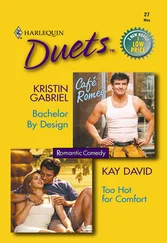J. Buckrose - A Bachelor's Comedy
Здесь есть возможность читать онлайн «J. Buckrose - A Bachelor's Comedy» — ознакомительный отрывок электронной книги совершенно бесплатно, а после прочтения отрывка купить полную версию. В некоторых случаях можно слушать аудио, скачать через торрент в формате fb2 и присутствует краткое содержание. Издательство: Иностранный паблик, Жанр: foreign_antique, foreign_prose, на английском языке. Описание произведения, (предисловие) а так же отзывы посетителей доступны на портале библиотеки ЛибКат.
- Название:A Bachelor's Comedy
- Автор:
- Издательство:Иностранный паблик
- Жанр:
- Год:неизвестен
- ISBN:нет данных
- Рейтинг книги:4 / 5. Голосов: 1
-
Избранное:Добавить в избранное
- Отзывы:
-
Ваша оценка:
- 80
- 1
- 2
- 3
- 4
- 5
A Bachelor's Comedy: краткое содержание, описание и аннотация
Предлагаем к чтению аннотацию, описание, краткое содержание или предисловие (зависит от того, что написал сам автор книги «A Bachelor's Comedy»). Если вы не нашли необходимую информацию о книге — напишите в комментариях, мы постараемся отыскать её.
A Bachelor's Comedy — читать онлайн ознакомительный отрывок
Ниже представлен текст книги, разбитый по страницам. Система сохранения места последней прочитанной страницы, позволяет с удобством читать онлайн бесплатно книгу «A Bachelor's Comedy», без необходимости каждый раз заново искать на чём Вы остановились. Поставьте закладку, и сможете в любой момент перейти на страницу, на которой закончили чтение.
Интервал:
Закладка:
J. E. Buckrose
A Bachelor's Comedy
CHAPTER I
This was no comedy to those most concerned, of course, for comedy is like happiness – directly a person knows he is in it, he is out of it. Tragedy, on the other hand, can only touch those who do not take themselves seriously enough.
No man, however, could take himself more seriously than did the Reverend Andrew Deane as he travelled down alone in a third-class railway carriage to his new living of Gaythorpe-on-the-Marsh.
When the train neared Millsby, the station for Gaythorpe, he rose hastily and peered at the piece of looking-glass provided for self-conscious travellers. Yes, his worst fears were altogether justified. His hair curled in a stiff bush above his forehead, in spite of brilliantine applied at the very last moment before leaving his London lodgings. Why – he demanded desperately of himself – why had he not brought a bottle in his pocket?
For he considered curls not only undignified but unclerical. His sensitiveness on the subject had started at the age of six, when he still wore them rather long and other little boys called him “Annie”! He fought the other little boys and induced his mother to have his hair cut, but the wound remained and rankled.
“Pshaw! Most annoying!” he said, passing his hand over his offending head. Then he sat down and blew his nose nervously as the train glided into Millsby station.
“Morning, Mr. Deane. I suppose you are the Reverend Deane?” said a fat gentleman with black hair and a red face, approaching the carriage door.
“Yes. Thank you. How-do-you-do?” said Andy, rather jerkily.
“My name’s Thorpe,” said the fat man, with colossal repose. “I’m the churchwarden. Glad to welcome you to your new parish, though it’s only for a few hours.”
“You are very kind,” responded Andy, feeling sure that the porter, the stationmaster and three stragglers were listening, and anxious to be as like his late senior curate – who was tall, lean, and immensely impressive – as possible.
“I expect you’re going to see what you want in the way of furniture for the Vicarage?” said Mr. Thorpe, moving ponderously towards the gate.
“Yes,” said Andy breathlessly.
It is rather a breathless thing, of course, to stand finally on the summit of one’s desires.
“Cart’s waiting. No luggage this time, I s’pose?” said Mr. Thorpe, who economised words. “Come this way, then.” And to the stationmaster, who stepped forward, thin and alert: “This is the Reverend Deane, our new Vicar.”
Again the parson shook hands, but that was nothing; because an eternal handshaking is as essential a part of a clergyman’s life as putting on his trousers: it was the absence of the Andrew that went home to him. All his life he had been dogged by an undignified “Andy,” which was even more unclerical than the curls. Now he meant to drop it for ever. No one here had known him before at school or college – no one here was acquainted with the aunt by marriage and the cousins who had been his family since the age of sixteen – he would drop the boyish “Andy” into the limbo of the past.
From all this it will be gathered, and rightly, that the Reverend Andrew Deane had obtained a living almost as soon as it was legally possible, and that he had a boyish air which made every one treat him like a boy.
“There’s a good strawberry bed in the Vicarage garden,” said Mr. Thorpe, as he settled himself in the cart. “Gee-up, mare!”
Then he seemed to think he had said all there was to say, and they jogged on silently through the quiet lanes.
After the hurry and bustle of the growing years, and the time at college, and the London curacy, Andy seemed, as he sat there, to have come out into some quiet place where he could look round and listen. He felt, unconsciously, as a man does who has stood on a country road to watch a noisy procession pass: the last straggler vanishes in the cloud of dust behind it – the clash of music and shouting dies away – and a lark that has sung unnoticed all the time, goes on singing.
This is the voice of peace grown audible at last, and those are very happy who hear it.
“H-hem,” said Mr. Thorpe, rousing himself at a sharp corner. “Funny you should be a bachelor. We seem in for unmarried parsons.”
“In the present day there are many – ” began Andy. But when Mr. Thorpe started a speech he had a sort of steam-roller habit of finishing it.
“I was looking at the church-books the other day – they only go back to 1687 – and the first vicar whose name stands there was a bachelor. He was there fifty years. He signed himself Will Ford, though he’s called Gulielmus now on his grave by the churchyard path. Gee-up, mare!”
But in that minute Andy saw it all, and across the centuries he greeted a brother.
“That’s the church,” said Mr. Thorpe, pulling up on the crest of a little hill and pointing with his whip towards a square tower with the roofs of a village clustering near; a flight of rooks trailed across blue sky and grey-white clouds.
Andy drew a long breath.
“It’s – it’s extraordinarily peaceful,” he said.
“Not so peaceful as you’d – However, best find out for yourself,” said Mr. Thorpe.
So they jogged on again, cop, cop, cop in a sunny silence, until they neared the Vicarage, when the churchwarden added —
“Mr. and Mrs. Stamford are away, else they’d have asked you to lunch, of course, as they gave you the living. I thought you’d maybe look round the Vicarage, and then come up to my house for a meal. Mrs. Thorpe has a cold fowl waiting for you when you’re ready for it.”
“Thank you. It’s awfully good – ”
“And I’d have stopped to show you round myself,” said Mr. Thorpe, rolling on, as it were, over Andy’s acknowledgments, “but I have to see a man about some pigs. However, young Sam Petch’ll be there. He was odd man to the old Vicar.”
“Do you advise me to retain his services?” inquired Andy, with the responsible dignity of a vicar and a householder.
“Um,” said Mr. Thorpe. “I don’t know. The poor old Vicar grew very feeble towards the end, and let things go. And those Petches are none of ’em models. They don’t seem to know when they’re speaking the truth and when they aren’t. And young Sam drinks a bit too. No, I can’t really advise you to keep him on.”
“I shall certainly not do so after what you tell me,” said the new Vicar, sitting very erect. “I have the strongest feelings about the households of the clergy – they should be above reproach.”
“Y-yes,” said Mr. Thorpe. Then, relieved, “And, of course, the Petches have William to fall back on.”
“If there is any one responsible that settles – ” began Andy, when the mare shied violently at a man on the road, and he had to devote his attention to his new hat.
“It’s the man who’s waiting to see me about the pigs,” said Mr. Thorpe calmly, indicating a red-faced, angry-looking person on the roadside. “He looks as if he was tired of waiting. Should you mind walking across the churchyard instead of driving round to the Vicarage gate?”
“Of course,” cried Andy, jumping down; and followed by Mr. Thorpe’s hearty “Mind you come up for a meal as soon as you’re ready,” he went through the churchyard gate.
It clicked loosely behind him, easy with the passing of the generations, and as he walked down the path a great many of these thoughts which are common to all generous youth passed through his mind; for there is, in every one of us, such a glorious wish to do something for the world when we are young, though we can no more talk about it, then, than Andy could have done as he looked at the gravestone of that Gulielmus who in life had been plain Will Ford.
Читать дальшеИнтервал:
Закладка:
Похожие книги на «A Bachelor's Comedy»
Представляем Вашему вниманию похожие книги на «A Bachelor's Comedy» списком для выбора. Мы отобрали схожую по названию и смыслу литературу в надежде предоставить читателям больше вариантов отыскать новые, интересные, ещё непрочитанные произведения.
Обсуждение, отзывы о книге «A Bachelor's Comedy» и просто собственные мнения читателей. Оставьте ваши комментарии, напишите, что Вы думаете о произведении, его смысле или главных героях. Укажите что конкретно понравилось, а что нет, и почему Вы так считаете.












